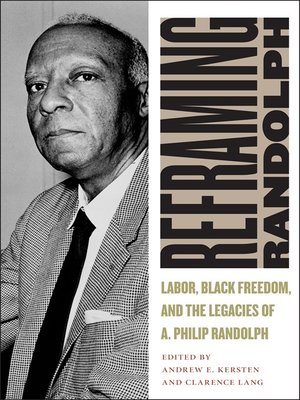Reframing Randolph
ebook ∣ Labor, Black Freedom, and the Legacies of A. Philip Randolph · Culture, Labor, History
By Andrew E. Kersten

Sign up to save your library
With an OverDrive account, you can save your favorite libraries for at-a-glance information about availability. Find out more about OverDrive accounts.
Find this title in Libby, the library reading app by OverDrive.



Search for a digital library with this title
Title found at these libraries:
| Loading... |
At
one time, Asa Philip Randolph (1889-1979) was a household name. As president of
the all-black Brotherhood of Sleeping Car Porters (BSCP), he was an embodiment
of America's multifaceted radical tradition, a leading spokesman for Black
America, and a potent symbol of trade unionism and civil rights agitation for
nearly half a century. But with the dissolution of the BSCP in the 1970s, the
assaults waged against organized labor in the 1980s, and the overall silencing
of labor history in U.S. popular discourse, he has been largely forgotten among
large segments of the general public before whom he once loomed so large.
Historians, however, have not only continued to focus on Randolph himself, but
his role (either direct, or via his legacy) in a wide range of social,
political, cultural, and even religious milieu and movements.
The authors of Reframing Randolph have taken Randolph's dusty portrait down from
the wall to reexamine and reframe it, allowing scholars to regard him in new,
and often competing, lights. This collection of essays gathers, for the very
first time, many genres of perspectives on Randolph. Featuring both established
and emergent intellectual voices, this project seeks to avoid both hagiography
and blanket condemnation alike. The contributors represent the diverse ways
that historians have approached the importance of his long and complex career
in the main political, social, and cultural currents of twentieth-century
African American specifically, and twentieth-century U.S. history overall. The
central goal of Reframing Randolph is
to achieve a combination of synthetic and critical reappraisal.






